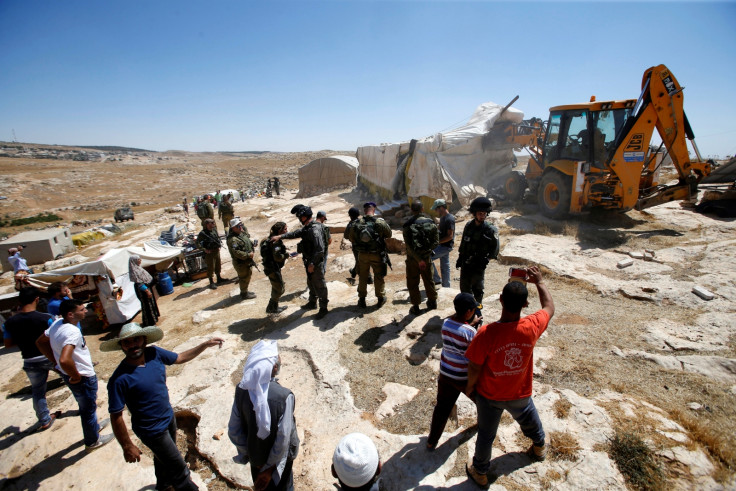Israel: Netanyahu government approves $18m funding for West Bank settlements
Construction of settlements in occupied Palestine are illegal under international law

Israel's government has announced an extra 70 million shekels ($18m, £12m) funding for settlements along the West Bank. The announcement was made by the office of Prime Minister Benjamin Netanyahu but has been criticised by opposition groups for diminishing the country's international standing.
The announcement was made following Sunday's cabinet meeting. The money will come from government departments including the interior ministry, agriculture, health and housing. Some 600,000 Jews live in settlements in the West Bank and in recent months there has been an upsurge in violence by Palestinian militants.
According to the Times of Israel Netanyahu said: "This is a multi-ministry effort aimed at strengthening security, aid small businesses, encourage tourism and more."
The cabinet resolution states: "Israeli communities in Judea and Samaria face a unique security situation on a daily basis because of their geographic location and the fabric of life in the area. From the beginning of October 2015, there was an escalation in the security situation in Judea and Samaria as a result of the wave of terror."
However, the construction of settlements in occupied Palestine are illegal under international law and have been the subject of international condemnation. The main objection is that the settlements are being built on land which would be allocated to Palestinians in the event of a two-state solution.
The announcement was greeted with criticism from within Israel and around the world. Palestine Liberation Organisation (PLO) secretary general Saeb Erekat said in a statement: "Israel is doing everything possible to sabotage every effort to achieve a just and lasting peace."
Amir Peretz of the Zionist Union said the settlements did not need extra security, and the money would have been better spent on poor children in what he called Israel's "periphery".
"I think this pours salt on the wounds of the weak, on the wounds of those who need every shekel," Peretz told the Jerusalem Post.
© Copyright IBTimes 2025. All rights reserved.






















